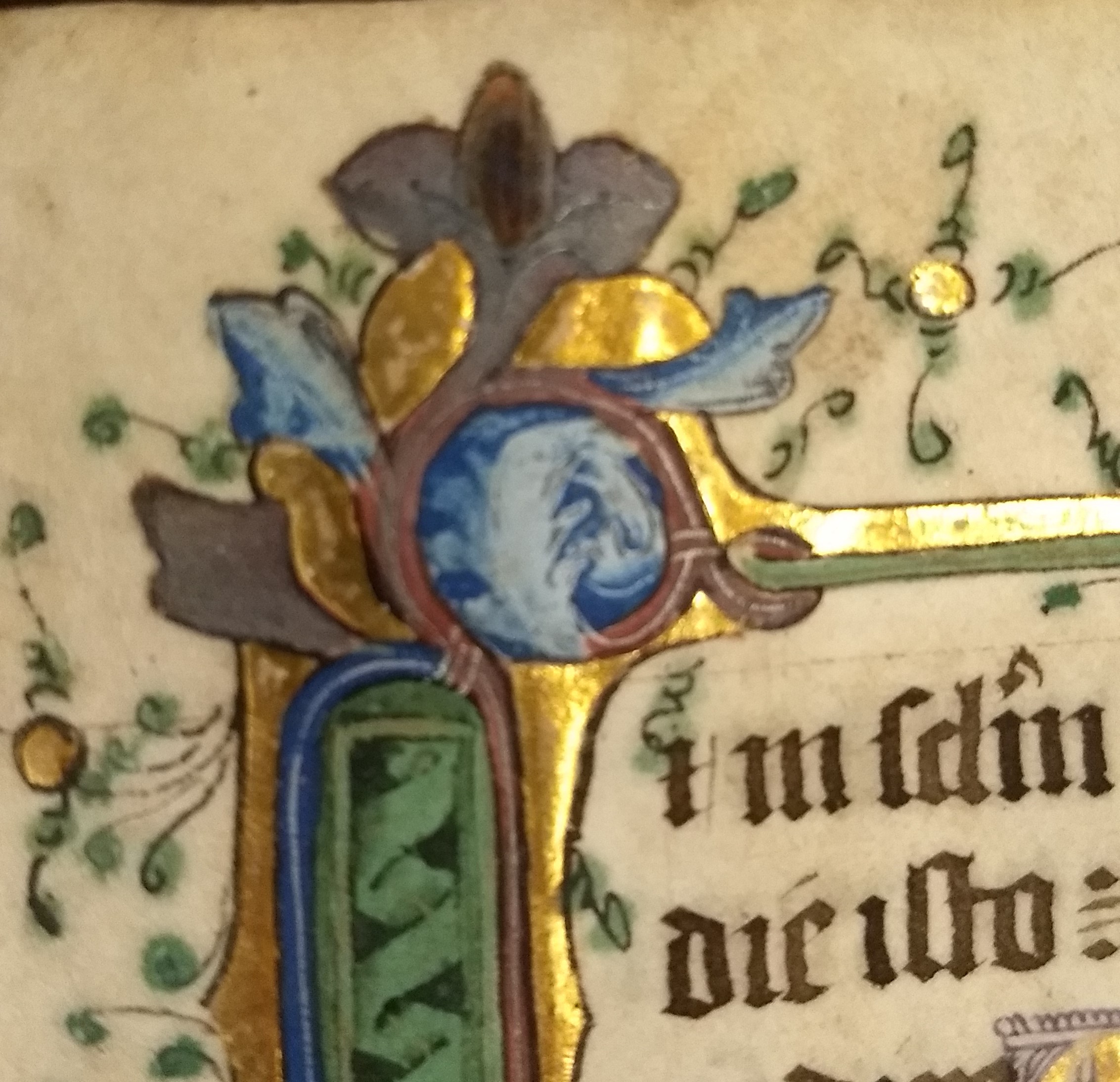Although I was not primarily jetting about English manuscript archives to look at Books of Hours, I did manage to squeeze in a few amidst my primary task (looking at manuscripts owned by nuns). All told, I examined eleven Books of Hours, all but one in the British Library, almost all to be used in England. (The British Library Manuscripts blog has discussed three of these Books of Hours, with pictures!) It’s a small sample, but it complements the massive array of horae that Katie and Madison have already examined digitally. And it wasn’t without fruit.
I was looking for three kinds of texts in these books: our auxiliary prayers, the Long Hours of the Passion and similar passion materials, and materials on English saints (for a different research project).
By far the most fruitful manuscript was BL Harley MS 1260, the Percy Hours that I already blogged about. It was the only one to contain the Long Hours of the Passion, and the only instance of three of our auxiliary prayers grouped together. But I did find the “Domine ihu xpi qui hanc sacratissimam carnem” prayer with its indulgence rubric in two other manuscripts (Harley MS 2846 and Egerton MS 3883, where the Boniface rubric is almost wholy erased). And BL, Add. MS 82946 included the prayer “Deus qui manus” as well. So that’s four out of eleven manuscripts that included at least one of the Hargrett Hours texts – pretty good returns.
Also interesting were manuscripts that included clusters of Passion material not present in the Hargrett Hours. BL, Harley MS 2846 had a cluster of imprecations (not Biblical Psalms) that it titled “The Psalter of the Passion,” as did Lambeth Palace, MS 3586, along with some other non-Hargrett Hours Passion prayers. (Neither the Harley nor the Lambeth manuscripts included the same materials under that rubric, and they were both different from the prayers that the Middle English poet John Audelay translated under that title. Fortunately, that’s not a textual rabbit hole we need to go down.)
I may also have solved a small mystery for Madison. When she was researching the Long Hours of the Passion last year, she discovered that there was a stable, very common set of hymns that most Long Hours included. However, there are also two sets of hymns that were less frequently used instead. Well, it so happens that one set of those infrequent hymns is often included in English copies of the Hours of the Virgin, at the very end of each Hour – sort of like a Passion-focused coda to each hour’s Marian emphasis. So it may be that some versions of the Long Hours of the Passion were cribbed into existence from these coda-hymns in English Hours of the Virgin.
Maybe the most unexpected find, however, were Middle English prayers in two of these manuscripts. The Hargrett Hours has a French prayer we still haven’t identified yet, but it’s more common to find vernacular prayers added to continental Books of Hours than it is to find them in English Books of Hours. Both Egerton MS 3883 and Harley MS 1845 include at least one auxiliary prayer in Middle English – prayers that were not added later by users, but that were part of the book’s original production. We may be playing with these prayers in Fall 2018’s class as a way to think about medieval devotional trends, and as a warmup for diving back into the Passion materials in the Hargrett Hours.
So no, I didn’t find anything earth-shatteringly interesting in these manuscripts (although the Percy Hours were close), but then I didn’t expect to. This kind of manuscript research grinds slow, but it grinds fine. And often throws up fun extra finds you didn’t know you’d get.
